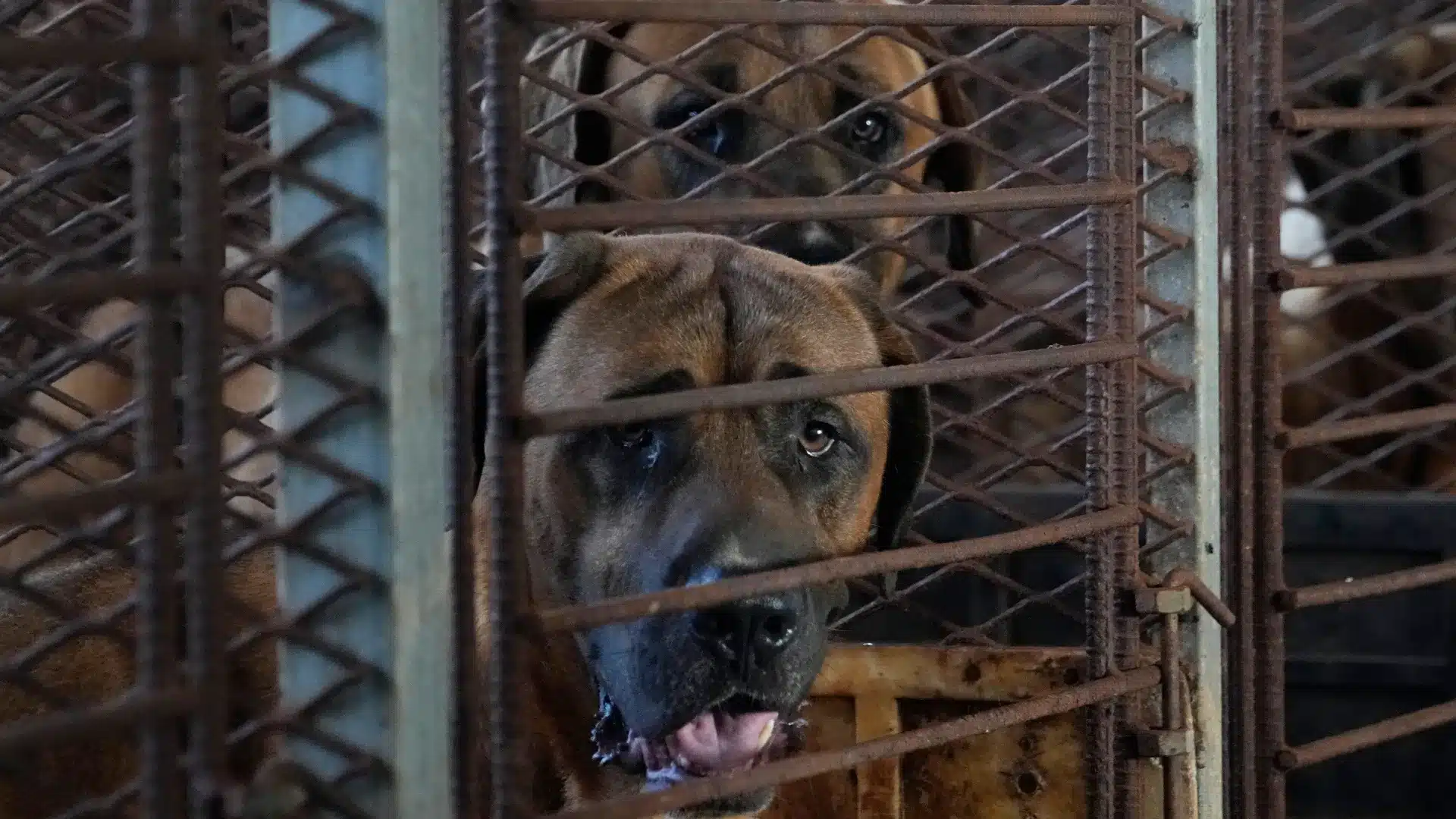South Korea’s Dog Meat Ban: What Lies Ahead for the Canine Population?

When Reverend Joo Yeong-bong is not preaching, he is managing a dog meat farm in South Korea, a business facing imminent extinction due to a nationwide ban on dog meat sales set to take effect in 2024. With the government providing farmers until February 2027 to close their operations, many, including Joo, are struggling to find buyers for their dogs, leading to financial distress and uncertainty about the future. The ban has raised concerns about the welfare of the estimated half a million dogs still in captivity and the lack of a clear plan for their rehoming or care.
Challenges for Dog Farmers
As the deadline for compliance approaches, dog farmers like Chan-woo, who has 600 dogs, are grappling with the harsh reality of the ban. Facing potential imprisonment for non-compliance, Chan-woo expresses his frustration, stating that he cannot process the number of dogs he has within the given timeframe. The traders who once purchased dogs have vanished, leaving farmers with unsellable animals and mounting debts. The government’s lack of a comprehensive plan for the remaining dogs has left many feeling abandoned. Chan-woo highlights the irony that those advocating for animal rights have not provided a solution for the dogs left behind, leading to a dire situation where euthanasia may become the only option for many animals.
Lee Sangkyung, a campaign manager at Humane World for Animals Korea, echoes these sentiments, emphasizing the need for a robust discussion on how to manage the dogs that remain. The Ministry of Agriculture has stated that local governments will take ownership of the dogs if farmers relinquish them, but rehoming has proven to be a significant challenge. Many of the dogs are larger breeds, which are less desirable in South Korea’s urban environment, where potential pet owners often prefer smaller dogs. Additionally, the stigma surrounding dogs from meat farms complicates adoption efforts, as many people associate them with disease and trauma.
Government Response and Public Sentiment
In response to the growing concerns, the South Korean government has pledged to invest approximately 6 billion Korean won annually to expand animal shelters and support private facilities. They have also offered financial incentives to farmers who close their businesses early. However, experts like Chun Myung-Sun from Seoul National University argue that the government’s plan lacks clarity and urgency. She stresses the need for a concrete strategy to address the fate of the dogs, including options for both adoption and euthanasia.
Despite the government’s assurances, many farmers remain skeptical. Chan-woo expresses disbelief that the animal rights groups, which played a significant role in pushing for the ban, have not developed a plan for the dogs. The sentiment is echoed by Cho Hee-kyung, head of the Korean Animal Welfare Association, who acknowledges that while efforts will be made to rescue as many animals as possible, some dogs will inevitably be left behind. The public’s perception of dog meat consumption has shifted dramatically, with a recent poll indicating that only 8% of respondents had eaten dog meat in the past year, down from 27% in 2015.
Seeking Alternatives
As the dog meat industry faces extinction, some farmers are exploring alternative solutions by sending dogs to countries like Canada, the United Kingdom, and the United States, where they may find more willing adopters. In 2023, a rescue operation successfully relocated 200 dogs from a farm in Asan city to North America. Former farm owner Yang Jong-tae expressed his surprise at the compassion shown by rescuers, contrasting it with the harsh realities of his own experience in the industry.
While some farmers have found solace in these rescue efforts, they still grapple with the implications of the ban. Yang, who disapproves of the prohibition, questions why dog meat is treated differently from other types of meat. The debate continues, with advocates highlighting the food safety risks associated with dog meat, which has not been integrated into South Korea’s regulated meat production system.
As the dog meat industry crumbles, many farmers are left uncertain about their futures. Some have resigned themselves to a life of poverty, while others fear that the trade may go underground. The younger generation in the industry faces particularly bleak prospects, as they struggle to adapt to a rapidly changing societal landscape. Reverend Joo articulates the collective anxiety among farmers, fearing that the impending deadline may lead to dire consequences for those unable to cope with the loss of their livelihoods.
Observer Voice is the one stop site for National, International news, Sports, Editor’s Choice, Art/culture contents, Quotes and much more. We also cover historical contents. Historical contents includes World History, Indian History, and what happened today. The website also covers Entertainment across the India and World.

